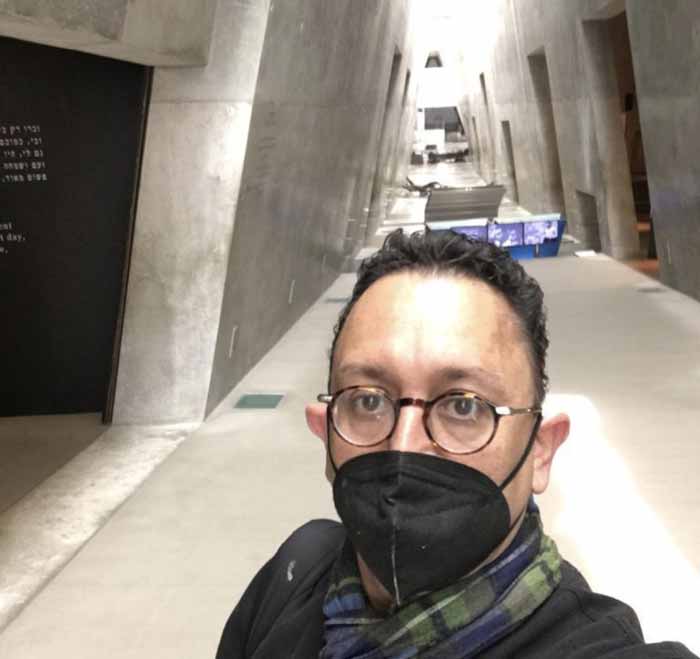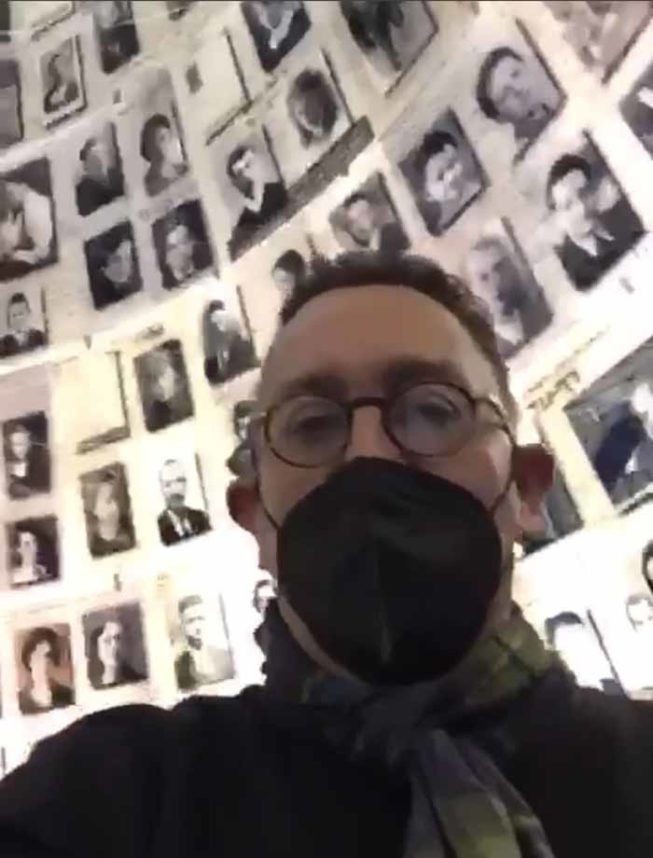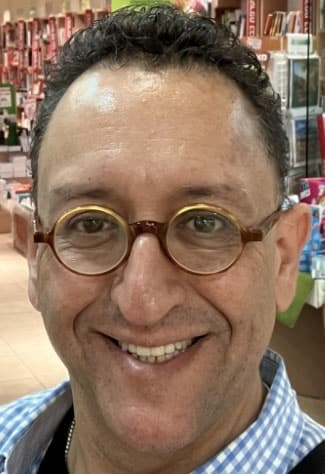
March 2, 2021 was my most surreal visit ever to Yad Vashem. I arrived in Israel two months earlier, just as the third Coronavirus lockdown took effect. I was visiting my son Ilan, who had recently completed his IDF service. My plan was to stay a few weeks, but due to the lockdown and airport closure, I had to extend my stay.
As things in Israel transitioned from lockdown to gradual reopening, I saw advertisements announcing the re-opening of museums in Jerusalem. The Yad Vashem ad caught my eye, as this was a perfect opportunity to do something I had never done: visit Yad Vashem alone. From my first visit to Yad Vashem as a teenager through the numerous Israel trips I have led, I always visited Yad Vashem with groups. I wanted to experience this sacred space alone.
I took a taxi to Yad Vashem. As my taxi pulled up to the entrance area, I felt a strange sense of emptiness. Absent from the parking area were the many tour group buses and taxis I am used to seeing there. My taxi driver said “you have the merit of being the client who brought me back to Yad Vashem for the first time in over a year.”
 I walked into the empty lobby, checked in, and proceeded to the outdoor area. I walked down that iconic bridge that leads you from the peaceful serenity of the Yad Vashem gardens into the disturbing universe of the Holocaust. Strict mask mandates were still in effect, and the guard outside reminded me of that.
I walked into the empty lobby, checked in, and proceeded to the outdoor area. I walked down that iconic bridge that leads you from the peaceful serenity of the Yad Vashem gardens into the disturbing universe of the Holocaust. Strict mask mandates were still in effect, and the guard outside reminded me of that.
As I entered the museum, I quickly understood why everything seemed so empty outside. Not one single visitor was inside. My wish to visit Yad Vashem “alone” was granted. Other than the guard at the entrance, I was literally all alone.
The guard greeted me by saying “You are our very first visitor today. Barukh Haba (welcome).” With a sense of fear, awe and trembling, I began a lonely and frightening journey through the mazes and walkways depicting hell on earth. The first sound I remember hearing was the chilling sound of Nazi boots marching. Being all alone, I felt as if they were marching towards me. I beheld the thousands of horrific images of hatred and heard the traumatizing sounds of genocide against my people.
I was struck by the image of a vaccination certificate from the Warsaw Ghetto. The certificate was emblazoned with a swastika. Listening to the narration, I heard the Hebrew term for vaccination certificate: Teudat Hissun. A surreal moment, as just the day before, I received my own Teudat Hissun from the Israeli Ministry of Health, attesting that I received two doses of the Pfizer COVID-19 vaccine. I took out my Teudat Hissun and looked at it. There was no swastika. Instead, there was the emblem of the State of Israel. Looking at the word “Pfizer,” it dawned on me that I received two doses of a vaccine produced by a company whose CEO, Albert Bourla, is the son of Holocaust survivors from Greece. My Teudat Hissun and COVID vaccinations suddenly took on a whole new meaning.
Walking all alone in the museum of the shadow of death, I heard more than the voices from the films and interviews. I heard haunting voices from our past. Six million voices, screaming to be heard, begging to be remembered. Voices of children, women, rabbis, poets, teachers, scientists, mothers and fathers. Voices of fear, terror, confusion and anguish. I heard them crying out to God — “Mima’amakim K’ratikha Hashem — Out of the Depths, I call upon You, God.”
As I came to the end of my lonely journey through Hitler’s inferno, I felt the spiritual urge to say Kaddish. But there was no minyan … or was there?
As I came to the end of my lonely journey through Hitler’s inferno, I felt the spiritual urge to say Kaddish. But there was no minyan … or was there?
I reached the Hall of Names. Looking above me and all around, I saw thousands of photographs. For three long hours, I hadn’t said a word, but as I stood amidst this vast minyan of images and memories, I spoke my first words in Yad Vashem that day: “Yitgadal v’yitkadash shmeh rabba.”
At that sacred moment, I no longer felt alone.
Rabbi Daniel Bouskila is the Director of the Sephardic Educational Center and the rabbi of the Westwood Village Synagogue.























 More news and opinions than at a Shabbat dinner, right in your inbox.
More news and opinions than at a Shabbat dinner, right in your inbox.